While it’s now been 2 ½ years since I left the staff of the San Francisco Jewish Film Festival, I still feel butterflies of excitement and occasional fits of anxiety as we approach each new festival season, symptomatic of some unconscious Judeo-Cinemato-Circadian rhythm that rules my autonomic nervous system. I suppose I should not discount, as indirect cause of my generally pleasant anticipatory jitters, the fact that good friends and colleagues still organize the festival, and that I just spent the better part of six months working at Frameline, precisely one floor upstairs from my former office. So I feel that I have been continually exposed to the 2014 strain of the SFJFF bug. While I am not fully versed in the upcoming program, there are several films premiering in the 2014 festival that I have been waiting years for; I also had the chance to preview some of this year’s films, write some program notes, and build up some excitement for a few screenings:
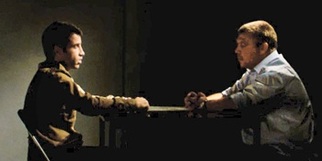
The Green Prince
The current ghastly violence in the Middle East will no doubt lend a strange cast to this year’s opening night documentary, about the friendship between a Palestinian counter-spy and his Israeli handler. For that reason alone I want to be there. I vividly recall having to preside at SFJFF’s Opening Night in 2006, days after the hostilities with Hezbollah in Lebanon had broken out. Watching films as a community can’t solve a crisis, but it sure beats fretting at home, clicking on the latest handheld video reportage on YouTube, and feeling helpless.
The current ghastly violence in the Middle East will no doubt lend a strange cast to this year’s opening night documentary, about the friendship between a Palestinian counter-spy and his Israeli handler. For that reason alone I want to be there. I vividly recall having to preside at SFJFF’s Opening Night in 2006, days after the hostilities with Hezbollah in Lebanon had broken out. Watching films as a community can’t solve a crisis, but it sure beats fretting at home, clicking on the latest handheld video reportage on YouTube, and feeling helpless.
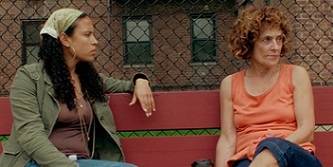
Little White Lie
I first met director Lacey Schwartz in Fall 2006, when her idea to tell the story of being both black and Jewish was in a very early stage and her proposed film, then titled “Outside the Box,” was sketchy at best. How wonderful to see that she has pulled off a terrific personal documentary, strong enough to be the festival’s Closing Night. I was thrilled to write the program note.
I first met director Lacey Schwartz in Fall 2006, when her idea to tell the story of being both black and Jewish was in a very early stage and her proposed film, then titled “Outside the Box,” was sketchy at best. How wonderful to see that she has pulled off a terrific personal documentary, strong enough to be the festival’s Closing Night. I was thrilled to write the program note.
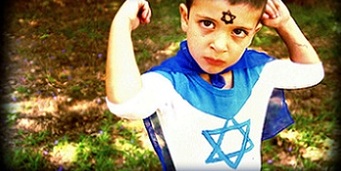
10%: What Makes a Hero
Another example of a documentary long brewing: for several years, Yoav Shamir—talented and provocative maker of Checkpoint, Defamation and Five Days—has been pondering on the kinds of people who become moral heroes. He shared with me once that, in considering the infamous Milgrom obedience experiments, he was interested not in exploring the psychology of the majority of participants who kept pushing the buttons that (they thought) tortured unseen subjects, but rather in understanding the few participants who resisted. This film—which I haven’t yet seen—is the result.
Another example of a documentary long brewing: for several years, Yoav Shamir—talented and provocative maker of Checkpoint, Defamation and Five Days—has been pondering on the kinds of people who become moral heroes. He shared with me once that, in considering the infamous Milgrom obedience experiments, he was interested not in exploring the psychology of the majority of participants who kept pushing the buttons that (they thought) tortured unseen subjects, but rather in understanding the few participants who resisted. This film—which I haven’t yet seen—is the result.
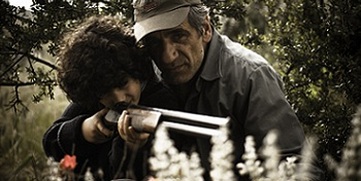
A Place in Heaven
Scripted with a bold storytelling style and beautifully shot to reflect the mystical-fabular nature of the story, this is a present-day morality tale that is as fascinating a drama as I’ve seen in a long while. My description in the online catalog is a sufficient statement of why I like the film, but, like the Coen Brothers’ A Serious Man or Woody Allen’s Crimes and Misdemeanors, it’s the kind of film I want to see again just to chew over.
Scripted with a bold storytelling style and beautifully shot to reflect the mystical-fabular nature of the story, this is a present-day morality tale that is as fascinating a drama as I’ve seen in a long while. My description in the online catalog is a sufficient statement of why I like the film, but, like the Coen Brothers’ A Serious Man or Woody Allen’s Crimes and Misdemeanors, it’s the kind of film I want to see again just to chew over.
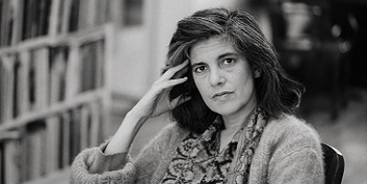
Regarding Susan Sontag
If you missed it at Frameline, here’s your chance to see Nancy Kates’s thoughtful and deeply engrossing account of the life and (self-)image of America’s most glamorous and prolific public intellectual.
If you missed it at Frameline, here’s your chance to see Nancy Kates’s thoughtful and deeply engrossing account of the life and (self-)image of America’s most glamorous and prolific public intellectual.
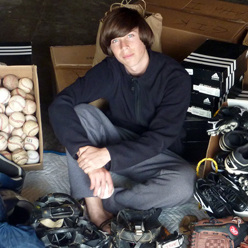
Havana Curveball
If you need a shot of optimism about the future of our sorry world, come meet Mica, the adolescent hero of this Bay Area-bred documentary, as it follows his attempts over several years to bring much-needed baseball equipment to kids in Cuba. Full disclosure: Mica’s parents—the talented local filmmakers Ken Schneider and Marcia Jarmel—are friends of mine, but I’ve been watching their film deepen and grow from where it started, and it has flowered into a beautiful and surprising evocation of tikkun olam. Don't miss this uplifting and touching chronicle, and the chance to meet the whole family at several Bay Area screenings.
If you need a shot of optimism about the future of our sorry world, come meet Mica, the adolescent hero of this Bay Area-bred documentary, as it follows his attempts over several years to bring much-needed baseball equipment to kids in Cuba. Full disclosure: Mica’s parents—the talented local filmmakers Ken Schneider and Marcia Jarmel—are friends of mine, but I’ve been watching their film deepen and grow from where it started, and it has flowered into a beautiful and surprising evocation of tikkun olam. Don't miss this uplifting and touching chronicle, and the chance to meet the whole family at several Bay Area screenings.

 RSS Feed
RSS Feed
